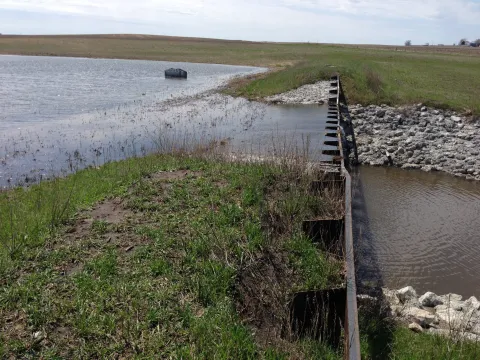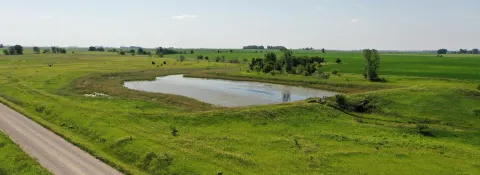Iowa Water Center

The Iowa Water Center (IWC) was established as part of the U.S. Water Resources Research Act (WRRA) of 1964, which created a national network of water institutes across the country. Located at Iowa State University, the IWC's mission is to advance water science to address Iowa’s water resource needs. It works to foster a connected water science community and promotes unbiased, science-based communication, transparency, and inclusion in all its actions. The center applies systems approaches to tackle complex water challenges, collaborating with diverse stakeholders to conduct research and develop solutions.
With a focus on education and innovation, the IWC strives to identify Iowa’s most pressing water concerns, support interdisciplinary research, and help cultivate the next generation of water scientists. Its objectives include educating water researchers, students, professionals, and policymakers on current research, while promoting collaborative efforts that advance water management strategies. Through these efforts, the IWC plays a crucial role in shaping the future of water resource management in Iowa and beyond.
Iowa Nutrient Research Center

The Iowa Nutrient Research Center (INRC) was established in 2013 by the Iowa Board of Regents in response to Iowa legislative action, with a mission to advance science-based nutrient management research. Headquartered at Iowa State University, the center focuses on evaluating the performance of current and emerging nutrient management practices and developing new approaches to improve water quality. Using an adaptive management framework, the INRC provides research-driven recommendations for implementing and refining nutrient management strategies across the state.
Since its inception, the INRC has received approximately $16.4 million in state funding and supported 136 water quality projects. More than 95% of the funding has directly supported research in areas such as edge-of-fi
eld practices, nutrient management, land management, and multi-objective approaches. The center works closely with federal, state, and non-governmental organizations to leverage additional funding for its projects. Through these efforts, the INRC plays a key role in addressing nutrient management challenges in Iowa and improving water quality for the future.
